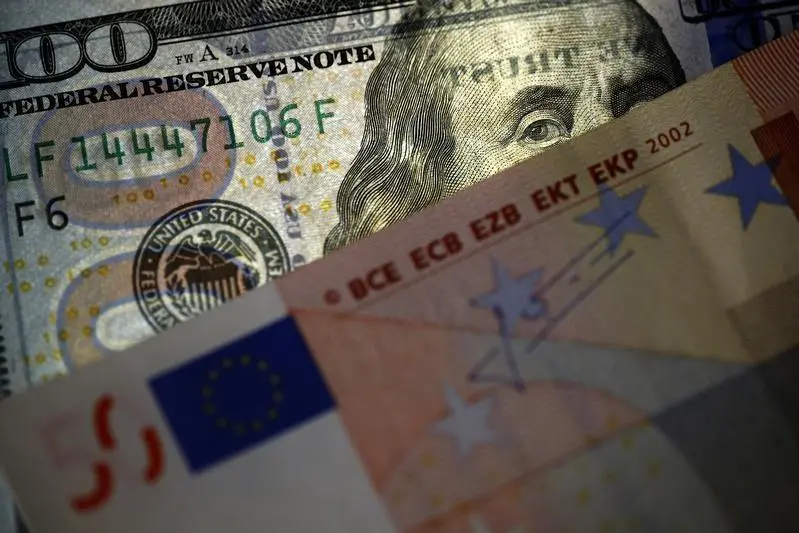PHOTO
LONDON/WASHINGTON - The euro gave back earlier gains on Wednesday after European Central Bank President Christine Lagarde said the era of ultra low inflation that preceded the pandemic is unlikely to return.
Speaking at a panel at the ECB Forum in Sintra, Portugal, alongside U.S. Federal Reserve Chairman Jerome Powell and Bank of England Governor Andrew Bailey, Lagarde added that central banks need to adjust to significantly higher price growth expectations.
The euro was last down 0.41% to $1.0475. It had dropped to as low as $1.0486 earlier in the day after data showed June prices in the German state of North Rhine–Westphalia (NRW) had been 0.1% lower than in May, but had recovered after a high readout of Spanish inflation data.
The ECB is widely expected to raise interest rates in July for the first time in a decade, following its global peers, to try to cool accelerating inflation, though economists are divided on the magnitude of any hike.
The dollar index, which measures the greenback against six counterparts, ticked up 0.412% to 104.880 with investors seeking safety in U.S. assets as stocks declined globally due to the mounting risk of a recession.
The dollar index stayed, however, below the two-decade high of 105.79 struck two weeks ago. The dollar was buoyed on comments from Powell during Wednesday's panel that while there is a risk that Fed interest rate hikes will slow the economy too much, the bigger risk is persistent inflation that starts to let public expectations about prices drift higher.
The Swiss franc rose on Wednesday to its highest level against the euro in four months as rising recession fear in the euro zone led investors to seek safe haven assets like the Swiss currency. The Swiss franc rose as high as 1.0013 versus the euro, its highest level against the single currency since March. It was last up 0.81% at 1.0008. Forecasts that the euro zone will likely drop into recession amid energy security issues triggered by the war in Ukraine has encouraged investors to buy the Swiss franc.
"Switzerland is less exposed to Russian fossil fuel imports and this should strengthen the risk of safe haven flows on euro zone growth concerns," said Jane Foley, head of FX strategy at Rabobank in London.
Cash held overnight by the Swiss National Bank fell last week by its largest amount in more than a decade, in a sign of the end of the central bank's forex purchase campaign to weaken the Swiss franc. Elsewhere, sterling extended its fall against the dollar, and was last down 0.57% at 1.21140.
In crytocurrencies, bitcoin last fell 0.82% to $20,088.47. Ethereum last fell 4.09% to $1,112.64.
(Reporting by Joice Alves and Hannah Lang, editing by Bradley Perrett, Mark Heinrich and David Evans)





















